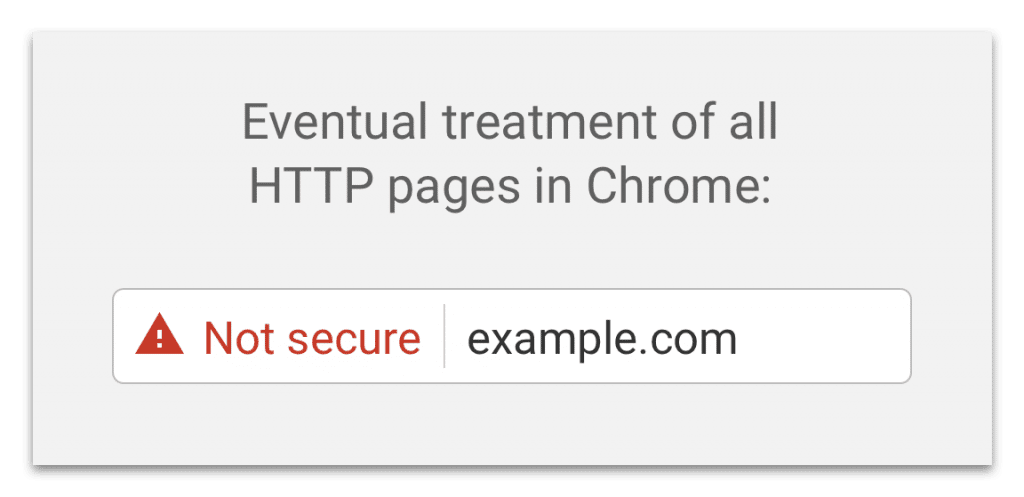By the end of January 2017, every website accessed through Google Chrome without an SSL Certificate is going to be labeled like the image below until they get one. You might be thinking that your visitors use Firefox, Safari, or Internet Explorer. However, once Google takes this step, everyone else will follow. A regime change is coming in 2017 and no one wants to risk getting left behind. See the official Google article by Emily Schechter linked below.

What is an SSL Certificate?
The biggest threat we face on the internet is identity theft, so let’s keep you safe and explain what an SSL Certificate is. SSL stands for Secure Socket Layer; this certificate ensures that when anyone visits your website their information is secure. The SSL Certificate will ensure that your users don’t receive security threat alerts, it will display a green lock symbol in your website’s URL, it will utilize HTTPS protocol and secure your website through the use of encryption keys.
SSL Certificates have been accessible for years. You don’t have to be looking over your shoulder when you make a purchase on amazon because the green lock symbol in the URL lets you know that your credit card number cannot be stolen from you. HTTPS (or Hypertext Transfer Protocol Secure) protocol, which can also be seen in the URL, is another way of letting you know that your information is safe. An SSL Certificate is your very own personal greeting, telling your viewers “Welcome! Leave your shoes at the door and kick your feet back on the couch.”
How do I get one?
Now that you understand what an SSL Certificate does, you’re probably thinking “Great, how can I get one?” Getting an SSL Certificate requires many steps: finding which certificate is right for you, purchasing the certificate, setting it up on your website, and redirecting visitors to the secure version of your website. This whole process may seem like a hassle, but it’s what’s necessary to keep your information and that of your guests safe. While most companies only sell you the SSL Certificate, My Website Spot will help you throughout the entire process.
Official Google Article:
We’re here to help.
You’ve already taken the first step: you’re informed. You know the risks of not having an SSL Certificate. All of us at My Web Spot want you to know that we are ready to help you take this important step in making your website secure. Please don’t hesitate to give us a call when you feel it is time to make your website safe and secure.
How do you feel about all of this? Do you think this is the right move for the web industry? Do you have any other questions about SSL or HTTPS? If you’re opposed to adding a certificate, why? Don’t be shy, leave your thoughts in the comments below.

